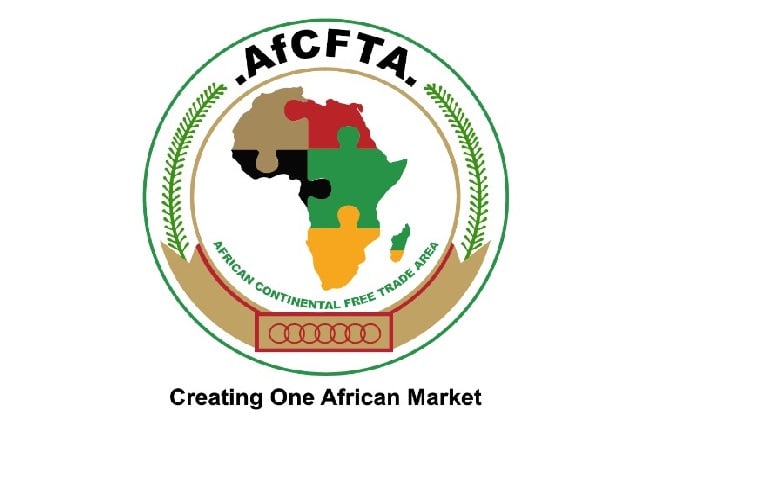The Chairman of the NEPAD Business Group Nigeria, Bashorun Randle, has urged Nigeria and other African countries to strengthen internal capacities to compete effectively and sustainably in the African market under the African Continental Free Trade Area.
Speaking on Thursday at the High-Level Forum on Mobilising Africa’s Private Sector for Africa’s Economic Growth and Development, held in Lagos, Randle said Africa could only realise the true dividends of AfCFTA by building productive, innovative, and resilient economies driven by the private sector.
Randle noted that the NEPAD Business Group Nigeria remained convinced that the private sector was “the engine of Africa’s transformation,” stressing that the forum was designed to “build actionable strategies that will strengthen Africa’s economic resilience, promote cross-border trade, and ensure inclusive prosperity for all.”
He said, “The true dividends of AfCFTA will only be realised if all African countries build internal capacities that will enable them to engage competitively and sustainably in the African market and beyond.”
The NBGN chairman added that achieving this goal would require “an enabling business environment, adequate infrastructure, human capital development, and substantial financial resources, 70 per cent of which should be mobilised domestically as enunciated under the African Union’s Agenda 2063.”
Randle cautioned that while Africa must take bold steps to accelerate AfCFTA implementation, it must also guard against external threats such as global economic volatility, tariff wars, and political tensions.
“Africa must fortify itself against disruptions that can reverse our gains and prevent us from accomplishing the targets set in the AU’s Agenda 2063,” he warned.
He added, “We must prepare for future disruptions, artificial intelligence, cyber risks, global trade fragmentation, protectionism, and climate transitions. Each will test the governance system we build today. In a world where disruption is inevitable, resilience is the ultimate advantage.”
Randle further noted that NEPAD Business Group Nigeria had identified vast opportunities for cooperation among African entrepreneurs, stressing the need for concrete collaboration beyond policy rhetoric.
On his part, the Chief Executive Officer and National Coordinator of the African Union Development Agency – New Partnership for Africa’s Development Nigeria, Jabiru Abdullahi, said AfCFTA represented “Africa’s biggest opportunity yet” to unite its markets and define its place in the global economy.
He said, “The AfCFTA gives us a platform, a single market of over 1.4 billion people and a GDP of over $3.4tn; but for that to happen, we must create the right conditions, better infrastructure, harmonised policies, access to finance, and a level playing field for business to thrive.”
Abdullahi stressed that AUDA-NEPAD Nigeria was working to ensure that Nigeria not only participated in AfCFTA but led its implementation across the continent.
“It is a must. We must lead,” he declared. “That means promoting industrial diversification, improving logistics, and implementing policies that make trade easier and fairer for our entrepreneurs.”
He maintained that AfCFTA was “more than a trade agreement” but “a blueprint for Africa’s chance at self-reliance and shared prosperity.”
Abdullahi concluded, “When we work together, we can create jobs, strengthen communities, and make growth inclusive. The private sector must be at the centre because when businesses thrive, economies grow, and nations prosper.”
Representing the Lagos State Governor, Babajide Sanwo-Olu, the Commissioner for Commerce, Cooperatives, Trade and Investment, Folashade Ambrose-Medebem, said hosting the forum in Lagos underscored the state’s strategic position as the “gateway to African trade.”
She stated, “You are gathered precisely where Africa’s ambition meets possibility. Governments can negotiate tariffs and treaties, but businesses must produce, export, invest, and believe in cross-border possibilities.”
Ambrose-Medebem said Lagos was already creating platforms that aligned with AfCFTA’s objectives by investing in infrastructure, logistics, and digital connectivity to promote trade and innovation.
According to her, “Lagos State continues to invest in critical infrastructure, strengthen logistic chains, and build the digital backbone that modern trade requires. These are deliberate steps to align Lagos with the broader vision of AfCFTA, an Africa that trades more with itself, competes globally, and prospers collectively.”
She emphasised that the success of AfCFTA depended on the empowerment of small and medium enterprises, which she described as “the heartbeat of Africa’s private sector.”
To address access-to-finance barriers, she said the Lagos State Government, through her ministry, launched the Lagos State Access to Finance through Cooperatives Programme in partnership with the Bank of Industry, with a N5bn matching fund provided by the state government at zero per cent interest.
Ambrose-Medebem added that the state had also trained over 250 Micro, Small, and Medium Enterprises under the Lagos State Export Readiness Programme, 189 of whom were women, and led trade missions to international fairs to boost Nigeria’s export footprint.















